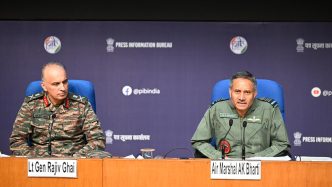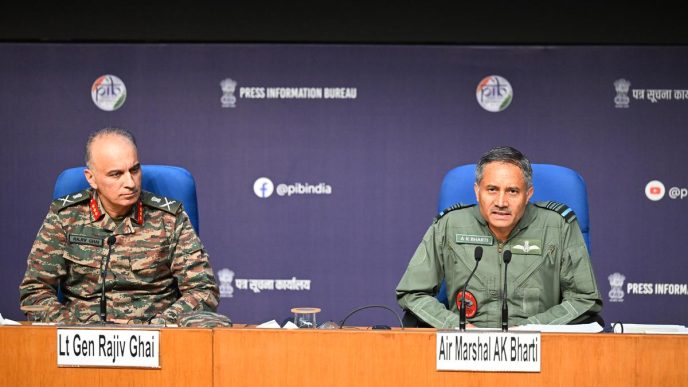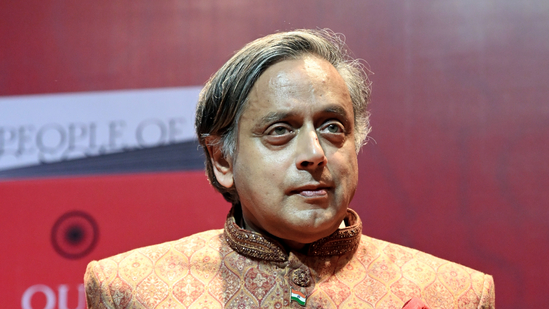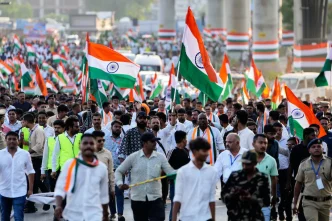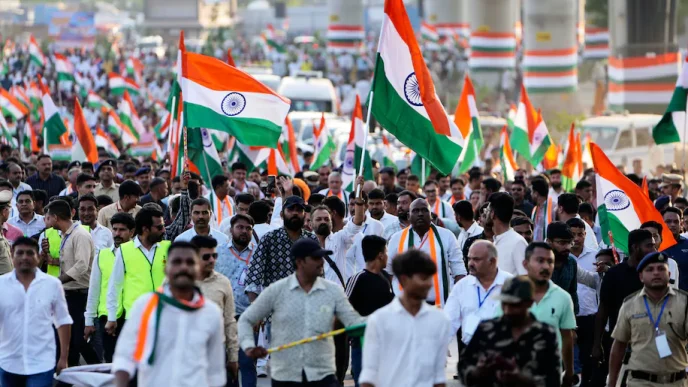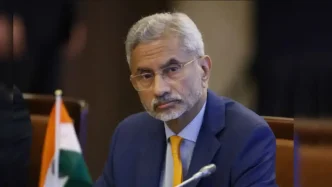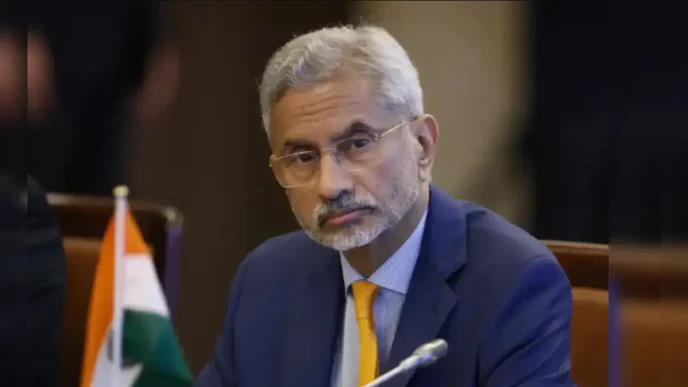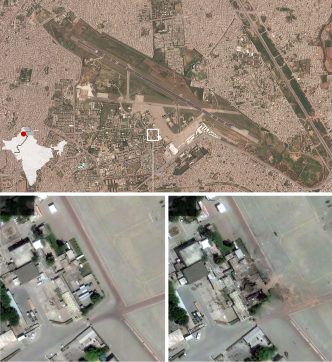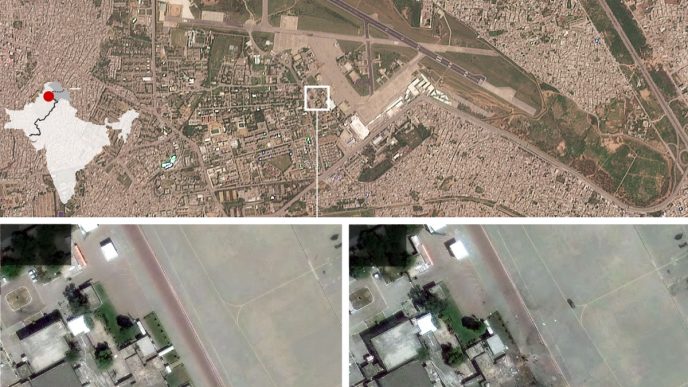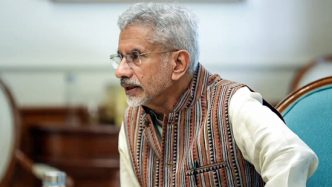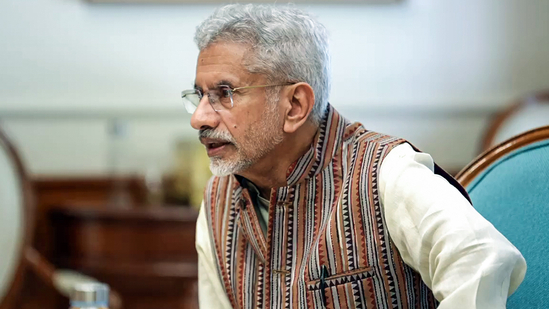India’s Mumbai— The present escalation between India and Pakistan, according to Vice President Vance, is “fundamentally none of our business,” as the two countries exchanged blows using drones and projectiles overnight Thursday and early Friday evening, reaching locations that neither side has targeted in decades.
In response to a query about whether the Trump administration was concerned about nuclear war, Vance appeared on Fox News late Thursday. “We want this thing to de-escalate as quickly as possible,” explained. “We can’t control these countries though.”
“What we can do is try to encourage these folks to de-escalate a little bit, but we’re not going to get involved in the middle of a war that’s fundamentally none of our business and has nothing to do with America’s ability to control it.”
On May 8, 2025, a man stands inside his home in the Salamabad village of Uri, which is roughly 110 kilometres from Srinagar, after it was devastated by Pakistani artillery firing. On May 8, the Indian government claimed that Pakistan had used “drones and missiles” to launch an overnight air attack. New Delhi then destroyed an air defence system in Lahore as a form of retaliation. According to a statement from India’s defence ministry, “Pakistan attempted to engage a number of military targets… using drones and missiles,” but “air defence systems neutralised” them. (Image courtesy of AFP/Sajjad Hussein) (Image courtesy of AFP/SAJJAD HUSSAIN via Getty Images)
Asia
Amid the threat of nuclear war, India and Pakistan exchange attacks.
Vance stated that he did not believe that nuclear war was likely to occur and that the administration was working to de-escalate the situation diplomatically. According to Secretary of State Marco Rubio, he had conversations with the prime minister of Pakistan and the foreign minister of India on Thursday.
“This might embolden both sides,” said Praveen Donthi, an International Crisis Group analyst for India, in reference to Vance’s remarks. The rising tensions between India and Pakistan, he claimed, have been “breaching a new threshold every day, and we don’t know when it is going to stop.”
Arifa Noor, a columnist for the liberal newspaper Dawn, stated that Vance’s remarks seemed to indicate a more detached foreign policy. Washington made a concerted effort to reduce tensions during the 1999 and 2019 escalations.
Despite the fact that the two nations have long depended on the United States to “step in and talk the two countries off the ledge,” she stated that the issue is that “I do not think that there is another power that can step into this vacuum.” As she put it, they are “two nuclear powers that are inherently in a very unstable situation.”
She claimed that because Pakistan perceived itself as the weaker party in its decades-long conflict with India, primarily over the disputed territory of Kashmir, it frequently looked to other countries for assistance. Both nations claim the entire Himalayan region, which is shared between them.
In late April, 26 persons, primarily Hindu tourists, were slain by gunmen in Indian-administered Kashmir, sparking the current wave of violence. India maintained that the shooters were agents of the Pakistani military. Pakistan disputes any involvement in the assault.
In what it said was retaliation, India launched missile strikes throughout Pakistan overnight on Wednesday. Pakistan claimed to have shot down five Indian planes. Since then, the two sides have exchanged projectiles and drone strikes.
Vance’s remarks, according to Donthi of the Crisis Group, implied that Washington might be understanding of India’s complaints and “seems to have come to the conclusion that letting this play out a bit more is actually contributing to that effort to confront the threat of terror.”
At least two rockets touched down on Friday close to a military base in Okara, Pakistan. As young men ran out of the way, residents captured one careering to the ground and whirling over a field while releasing plumes of smoke. In order to avoid upsetting Pakistani officials, who have not commented on the incident, two residents independently told NPR about the incident, but both asked to remain anonymous.
An Indian military officer told a briefing on Friday that her nation sent drones to four places in Pakistan in response to what she described as a “escalation” by its rival. The increase was a reference to Pakistani drones that targeted Indian towns overnight along a 760-mile border that has not been targeted in conflict for decades, from Poonch and Jammu in the Himalayan peaks of Indian-held Kashmir to the desert town of Jaisalmer in northwest India.
“There were dozens of fireballs in the sky,” Gowher Ahmad, 43, of Jammu city, said in reference to the nocturnal bombardment. Ahmad claimed that although Friday was calm, he was afraid of the night.
The majority of the 10,000 people living in the border village of Ajote have left, according to Jaspreet Kaur. “The rest of us are huddled up in the basement of a three-story building,” she continued. Many inhabitants, including his old parents, were unable to escape because they had to take care of their animals, according to Karamat Hussain of Khari, another border village.
India seems to be cracking down harder on critics as the violence persists. Prominent Kashmiri preacher Mirwaiz Umar Farooq, who supports the region’s independence, said on X that he was denied entry to communal Muslim Friday prayers in Indian-held Kashmir. He posted a video of his sermon on Friday, saying, “I urge both the countries to urgently de-escalate and not to tread on this dangerous path, which can only lead to destruction.”
In a post on its global affairs account, the social networking platform X also claimed to have received “executive orders” from the Indian government to block over 8,000 accounts, including news outlets. Anuradha Bhasin, a well-known journalist from Kashmir, and The Wire, an independent news website with headquarters in New Delhi, were among those censored. Requests for comment from Indian authorities were not answered.




